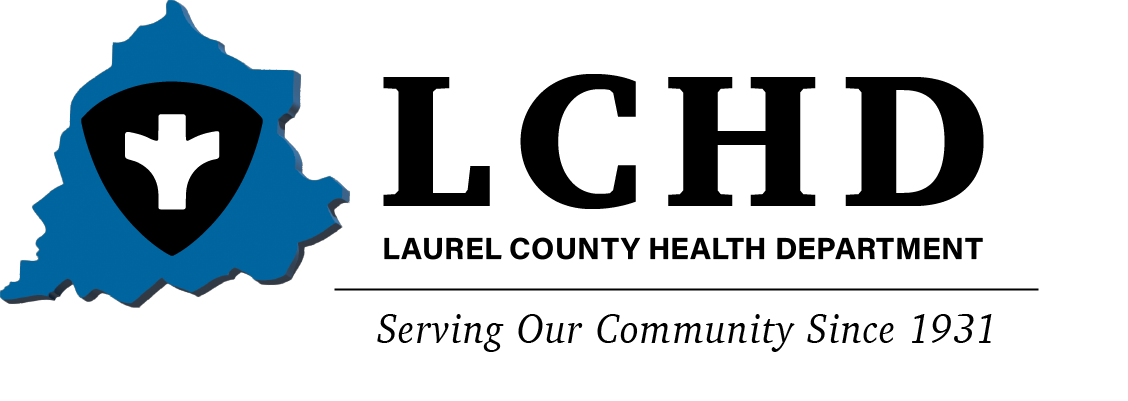
Inspections
Food Safety Inspections
By law, food service establishments (this includes bars, restaurants, etc.) operating in Kentucky are required to have a permit to operate. These permits are issued by the Kentucky Cabinet for Health and Family Services.
One of the requirements for a permit is that the establishment must be inspected regularly. This is done by a registered sanitarian, commonly known as a health inspector.
Frequency of Inspections
The inspections are conducted based upon items related to general sanitation and food safety. They are done twice a year, unless otherwise needed (for example, a restaurant having a food safety/sanitation complaint may be inspected more than twice in one year. Also, establishments that only operate for a short period of time during the year may only receive one inspection each year).
The inspections are typically unannounced—the establishment does not know ahead of time when the inspection will take place. The exception to this is in cases where it is necessary to schedule an inspection due to an establishment’s hours of operation or for other establishments that are not open to the public on a walk-in basis.
Follow-Up Inspections
Generally, follow-up inspections are necessary within 10 days if an establishment has any critical violations or within 30 days if it has a total score below 85 without critical violations. Follow-up inspections can be conducted on the same visit, if the problem is something the restaurant staff can correct immediately. A food establishment can also require more than one follow-up inspection.
In any case, if the total score received is below 70, more immediate enforcement measures are taken involving imminent or immediate suspension of the establishment’s permit. Scores below 70 may require administrative actions, including conferences with officials from the Kentucky Department for Public Health, which may result in later follow-up dates. The food establishment may be required to close during this time period.
Scores: What Do They Mean?
Inspections involve a report containing 38 potential items of violation, each of which is assigned a point value based on how it can affect a person’s health. The point values range from one to five, with one being least severe and five being most severe. Most of the items on the inspection are weighted at one or two points and are characterized as “non-critical.” Others are weighted at three, four or five points because they are considered a higher threat and are characterized as “critical.”
An example of a non-critical item is a hand washing sink in an establishment that is dirty or a refrigerator that doesn’t have a thermometer provided in or on it to monitor the temperature inside.
An example of a critical item is an employee failing to use a hand sink, whether dirty or not, to wash hands between handling raw chicken and cutting up vegetables for use in salad; or potentially hazardous food items stored at a temperature of 60 degrees Fahrenheit inside a refrigerator that is not cooling properly due to a mechanical failure, whether a thermometer is present or not.
To calculate an establishment’s final score, the total of the points for all violations marked is subtracted from a total point value of 100.
Purpose
The purpose of the inspections are to assure that the food is being properly handled and protected when stored, prepared, displayed, served and transported. Inspectors observe various aspects of a food service operation including:
Food service workers’ hygienic practices and food handling practices
Food temperatures for potentially hazardous foods
Equipment design, maintenance and operation
Storage of foods and food service items
Hotels & Motels
The hotel and motel inspection program ensures that applicable lodging facilities are clean and free of health and safety risks. Inspections are conducted by our environmentalists at least once each year with follow up inspections and complaint investigations as necessary.
Kentucky Revised Statutes
KRS 219.011 - Definitions for KRS 219.011 to 219.081
KRS 219.021 - Permits for hotels -- Fee -- Exemptions -- Permits not transferable.
KRS 219.031 - Denial, suspension, or revocation of permit; hearing; Cabinet and local health department employees authorized to enter premises
KRS 219.041 - Regulations -- State hotel code
KRS 219.051 - Enforcement of fire and safety regulations
KRS 219.071 - Trust and agency fund -- Expenditure of funds
KRS 219.081 - Short title
KRS 219.111 - Motels -- Safety requirements.
Kentucky Administrative Regulation
Contact us to register a complaint on a hotel or motel.
Mobile Homes & Recreational Vehicles
In Kentucky, a mobile home community is defined as a developed parcel of land containing common facilities and utilities on the premises as licensed by the Cabinet intended specifically to lease two or more residential spaces on which to locate manufactured or mobile home dwellings.
A recreational vehicle community is defined as a parcel of land available to the public containing two or more spaces occupied or intended to be occupied by recreational vehicles for transient dwelling purposes and including any service building, structure, enclosure or other facility used as a part of the community.
The state mobile home and recreational vehicle communities program establishes standards for community construction and layout, sanitary standards for operation and other measures to ensure a safe and sanitary community operation.
Statutes and Regulations
KRS 219.310 - Title
KRS 219.320 - Definitions for KRS 219.330 to 219.410
KRS 219.330 - Permit for operation of park, Application
KRS 219.340 - Issuance, duration, posting of permits, Fees, Permits not transferable
KRS 219.350 - Permit for construction of park
KRS 219.360 - Issuance of construction permit, Refusal of application, Resubmission, Changes in plan or facilities, Application of local building codes and zoning laws.
KRS 219.370 - Regulation of park operations
KRS 219.380 - Powers of cabinet and local health departments, Duties of public prosecutors
KRS 219.390 - State Advisory Committee on Mobile Home and Recreational Vehicle Parks, Membership, Terms, Compensation
KRS 219.400 - Fees deposited in revolving fund to implement KRS 219.310 to 219.410
KRS 219.410 - Units for personal or farm use excluded
902 KAR Chapter 15; Section 010 - Mobile homes
902 KAR Chapter 15; Section 020 - Recreational vehicles
To register a complaint on a mobile home or recreational vehicle community, please contact us.
Swimming Pools
Laurel County’s public swimming pools are routinely inspected to ensure compliance with state and local regulations for sanitation, safety, and proper operation. New pool plans are reviewed and approved, and the facility is inspected prior to opening to the public. Written materials on swimming pool safety are provided to pool operators as well as the general public.
Preventing recreational water illnesses (RWIs) is a multifaceted issue that requires participation from pool staff, swimmers, and health departments. Poor maintenance can result in low disinfectant levels that can allow the spread of a variety of germs that cause diarrhea as well as skin and respiratory RWIs.
The Public Swimming Pools and Bathing Facilities Inspection Program ensures healthy conditions and safety at regulated facilities in Kentucky through annual, follow-up and monitoring inspections conducted by local health department environmental program staff.
For more information about Healthy Swimming, visit
For more information on the regulatory statutes related to public swimming and bathing facilities in Kentucky.
For more information about this program, applications or permit/fee information, please contact us.
Tattoo & Body Piercing
The Health Department regularly inspects all tattoo studios, body piercing studios, ear piercing studios and facilities providing permanent makeup in Laurel County.
Inspection Reports
The main purpose of these inspections is to reduce the risk of disease transmission, as these procedures often involve a break in the skin which could lead to exposure to disease such as hepatitis B, hepatitis C or HIV, among other infections.
Most facilities are inspected at least twice per year. Inspectors look for a variety of items, including:
Is the facility clean?
Is equipment sterilized properly?
Are needles only used once, and then properly disposed of?
Do staff follow proper hygienic practices, such as washing hands as needed and wearing gloves when required?
Has staff taken the required blood-borne pathogen training?
Does the facility require written consent for procedures done on individuals under 18?






